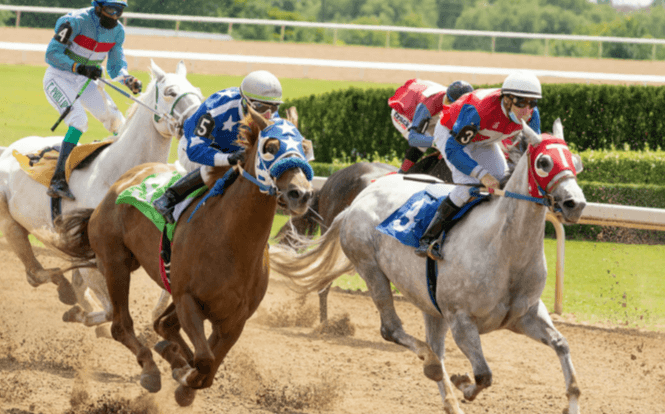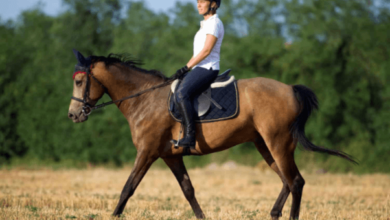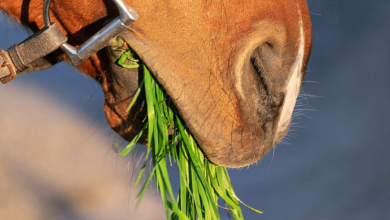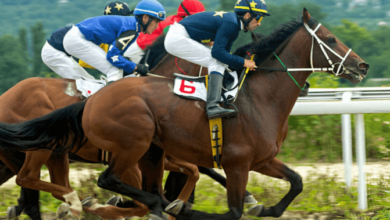How important is the role of a jockey in horse racing, and what qualities do you look for in a jockey?

Introduction
Horse racing is an exhilarating sport where speed, strategy, and synergy between horse and rider determine victory. Often, the focus is on the horse, its pedigree, and training. However, the jockey’s role is equally critical. A skilled jockey can transform a good horse into a champion. This article delves into the importance of a jockey in horse racing and the essential qualities to look for in a top jockey.
The Vital Role of a Jockey in Horse Racing
The jockey’s influence in a race extends beyond simply riding the horse. They must understand the horse’s strengths and weaknesses, the dynamics of the track, and the strategies of competitors. A jockey’s ability to make split-second decisions can be the difference between winning and losing.
Understanding the Track and Conditions
One of the primary roles of a jockey is to understand the track’s nuances. Different tracks have varied surfaces, turns, and conditions that can affect a horse’s performance. A jockey must adapt their riding style to suit these conditions, ensuring the horse maintains its best possible speed and stamina.
Communication with the Horse
Communication between the jockey and the horse is non-verbal but profoundly important. A good jockey has a deep understanding of the horse’s signals and responds appropriately. This bond can significantly influence the horse’s performance, instilling confidence and encouraging peak performance.
Race Strategy and Pacing
A jockey’s strategy during the race is pivotal. They need to know when to hold back and when to push forward, balancing the horse’s energy throughout the race. This involves understanding the competition, the horse’s endurance, and the optimal moments to make decisive moves.
Qualities of a Top Jockey
Not every jockey has what it takes to be at the top. The following qualities are essential for a jockey to excel in horse racing:
Physical Fitness and Agility
Horse racing demands exceptional physical fitness. A jockey must maintain a low weight while possessing the strength and agility to control a powerful animal at high speeds. This balance requires rigorous training and discipline.
Mental Toughness and Decision-Making
The mental aspect of horse racing is as crucial as the physical. Jockeys must remain calm under pressure, making quick, strategic decisions throughout the race. This mental resilience helps them stay focused and react swiftly to changing circumstances.
Experience and Knowledge
Experience is invaluable in horse racing. Experienced jockeys bring a wealth of knowledge about different horses, tracks, and race strategies. This expertise allows them to anticipate and react to situations more effectively than less experienced competitors.
Courage and Determination
Horse racing is inherently risky, requiring a significant amount of courage. Jockeys must be fearless, willing to take calculated risks to gain an advantage. Their determination and will to win drive them to push their limits and strive for victory.
Teamwork and Collaboration
A successful jockey works closely with trainers, owners, and other team members. Collaboration ensures the horse is in the best possible condition and the race strategy is well-planned. A jockey’s ability to work as part of a team enhances their overall effectiveness.
The Impact of a Jockey on Race Outcomes
The jockey’s influence on race outcomes cannot be overstated. Their ability to enhance the horse’s performance through skilled riding, strategic planning, and effective communication often determines the race result. The synergy between horse and jockey is crucial for success.
Training and Preparation
A jockey’s training regimen is intensive. They must maintain peak physical fitness, refine their riding skills, and stay informed about the latest racing strategies and techniques. Continuous improvement and adaptation are essential in this highly competitive sport.
Building a Winning Relationship with the Horse
A winning relationship between a jockey and a horse is built on trust and understanding. Spending time with the horse, both in and out of the saddle, helps the jockey understand the horse’s personality and behavior, leading to better communication and performance on race day.
Notable Jockeys and Their Contributions
History is replete with examples of exceptional jockeys who have left an indelible mark on horse racing. Legends like Lester Piggott, Bill Shoemaker, and more recently, Frankie Dettori, have showcased the profound impact a top jockey can have on the sport.
Challenges Faced by Jockeys
Jockeys face numerous challenges, including the physical demands of maintaining race weight, the mental pressure of competition, and the inherent risks of injury. Overcoming these challenges requires resilience, dedication, and a passion for the sport.
The Future of Jockeys in Horse Racing
The role of jockeys continues to evolve with advancements in training techniques, technology, and horse breeding. Future jockeys will need to adapt to these changes, continuously improving their skills and knowledge to remain competitive.
What Owners and Trainers Look for in a Jockey
Owners and trainers seek jockeys who are not only skilled riders but also possess strong communication skills, a deep understanding of race strategy, and the ability to work well with the entire team. These qualities ensure the jockey can bring out the best in the horse.
The Business Side of Horse Racing
Horse racing is also a significant business, and the jockey plays a crucial role in the financial success of a racehorse. Winning races enhances the horse’s value, leading to better breeding opportunities and increased earnings for owners and trainers.
The Role of Jockeys in Different Types of Horse Racing
Different types of horse racing, such as flat racing, steeplechase, and harness racing, require specific skills and strategies. Jockeys must be versatile, adapting their techniques to excel in various racing formats.
The Ethics and Integrity of Jockeys
Maintaining high ethical standards and integrity is vital for jockeys. They must adhere to racing regulations, avoid unethical practices, and uphold the sport’s reputation. This commitment ensures fair competition and the long-term sustainability of horse racing.
How to Become a Jockey
Aspiring jockeys must undergo rigorous training, often starting at a young age. They need to develop riding skills, understand horse behavior, and gain experience through apprenticeships and lower-tier races before competing at higher levels.
The Importance of Continuous Learning and Adaptation
Horse racing is constantly evolving, with new techniques, technologies, and strategies emerging. Successful jockeys commit to continuous learning, staying updated with industry advancements and refining their skills to maintain their competitive edge.
FAQs
How do jockeys maintain their race weight? Jockeys maintain their race weight through a combination of strict diet, exercise, and sometimes extreme measures like saunas and dehydration before a race. They need to balance maintaining low weight with staying healthy and fit.
What role does a jockey play in training a racehorse? A jockey works closely with trainers to prepare the horse for races, providing feedback on the horse’s performance during workouts, helping to fine-tune training regimes, and building a strong bond with the horse.
How do jockeys communicate with their horses during a race? Jockeys use a variety of non-verbal cues, such as shifting their weight, using reins, and gentle leg pressure to communicate with their horse. These signals help guide the horse’s speed and direction during the race.
What are the most common injuries for jockeys? Jockeys are at risk of various injuries, including fractures, concussions, and soft tissue damage, due to falls and collisions during races. Safety gear and regulations aim to minimize these risks, but the sport remains inherently dangerous.
How important is a jockey’s experience in winning races? Experience is crucial for a jockey, as it provides insights into different race tracks, horse behaviors, and effective race strategies. Experienced jockeys are better equipped to handle unexpected situations and make winning decisions.
What training do jockeys undergo to prepare for races? Jockeys undergo extensive physical training, including cardiovascular workouts, strength training, and riding practice. They also study race strategies, learn about their competitors, and stay informed about the horses they will be riding.
Conclusion
The role of a jockey in horse racing is indispensable. Their skills, strategies, and relationship with the horse significantly impact race outcomes. The qualities of a top jockey—physical fitness, mental toughness, experience, courage, and teamwork—define their success in this thrilling sport. As horse racing continues to evolve, the importance of a knowledgeable, skilled, and dedicated jockey remains as crucial as ever.





